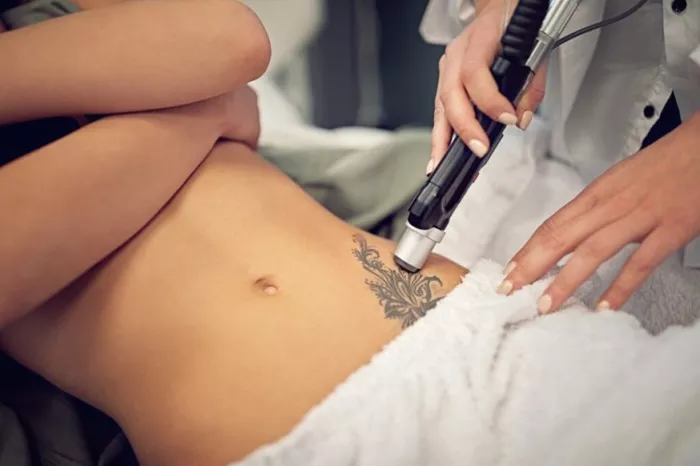While tattoos are widely accepted in many parts of the world, they remain taboo in Japan, particularly in public spaces such as bathhouses, gyms, and workplaces. Due to this longstanding stigma, many individuals opt for tattoo removal to avoid social and professional restrictions. However, attitudes are gradually shifting, with younger generations advocating for greater acceptance—especially when it comes to foreigners with tattoos.
If tattoos are creating challenges in Japan, removal may seem like a viable solution. But how accessible is the procedure? What are the costs involved? And is it truly worth it?
The Social Stigma Surrounding Tattoos
Tattoos are significantly less common in Japan compared to many Western countries. A 2019 Ipsos survey found that around 30% of Americans have at least one tattoo, a number that has steadily risen over the years. In contrast, only about 3% of Japan’s population is tattooed.
Public perception of body art remains largely negative. A small street survey conducted in Osaka revealed that 64% of respondents held unfavorable views of tattoos, with none expressing outright approval. However, perspectives vary by generation: a separate study found that 63% of Japanese Gen Z respondents believe bans on tattoos in public bathhouses and onsen should be lifted.
Interestingly, foreigners with tattoos often face less scrutiny than Japanese individuals with body art. In the Osaka survey, 68% of participants reported a positive view of tattoos on foreigners. Despite these evolving attitudes, visible tattoos can still lead to difficulties in professional settings, gyms, swimming pools, and traditional establishments.
Why Are Tattoos Still Controversial in Japan?
The persistent stigma surrounding tattoos in Japan stems primarily from two cultural factors:
Links to Organized Crime – Tattoos have long been associated with the yakuza, Japan’s organized crime syndicates. Traditional yakuza tattoos, known as irezumi, often feature elaborate full-body designs depicting dragons, koi fish, and deities. While modern gang members may opt for smaller or more discreet tattoos, the link between body art and criminal activity remains deeply ingrained in Japanese society.
Shinto Purity Beliefs – In Japan’s indigenous Shinto religion, cleanliness and purity are highly valued. Because tattoos permanently alter the body, they are sometimes viewed as impure, particularly in spaces such as public baths and shrines.
The Growing Demand for Tattoo Removal
Given these cultural stigmas, tattoo removal is increasingly common in Japan. The country ranks among the top nations for tattoo removal procedures.
According to a 2016 survey by the International Society of Aesthetic Plastic Surgery (ISAPS), Japan recorded 20,159 tattoo removal procedures, making it the second-highest in the world—behind only India (22,860 cases). The United States ranked third, with 14,124 cases.
As attitudes toward tattoos evolve, the future of body art in Japan remains uncertain. While younger generations push for greater acceptance, societal norms continue to impose limitations on individuals with visible ink. For those struggling with these restrictions, tattoo removal remains a widely available, albeit costly, option.
Related topics:

